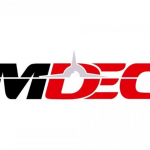AmInvestment Bank Research said that the upcoming digital service tax would be an advantage to local media players.
The research house said that it remained cautious about the extent to which these companies will benefit, due to several factors.
It noted that the tax, which comes into effect on January 1, 2020, could benefit media companies with TV and over-the-top (OTT) segments such as Astro, Media Prima and Star Media Group, which have seen their subscription revenue and average revenue per user (ARPU) impacted due to competition from international OTT players such as Netlfix.
“However, we are cautiously optimistic on this development as it still remains to be seen the extent to which the tax will benefit local players,” it said in a note.
One of the reasons for this, is due to Malaysia’s digital tax rate being lower than the rates in New Zealand, Russia and Norway at 15%, 18% and 25% respectively, according to Deputy Finance Minister Datuk Amiruddin Hamzah.
“Furthermore, pricing alone might not deter customers from choosing preferred content provided by foreign OTT players,” it said.
The digital service tax was set at a fixed rate of 6% per year, with an annual threshold of RM500,000 following the passing of the Service Tax (Amendment) 2019 Bill in Parliament.
The move by the government is aimed at levelling the playing field between local and international online service providers, as the digital tax is expected to benefit local media companies with TV and over-the-top (OTT) segments.
Under the Bill, tax defaulters face a fine of up to RM50,000 and/or imprisonment of up to three years upon conviction.
A foreign service provider is defined as a person outside Malaysia providing digital services to consumers and includes any person operating an online platform for buying and selling goods or providing services (whether or not such person provides anydigital service).
The Bill describes a digital service, meanwhile, as a service delivered or subscribed over the internet and other electronic network and which cannot be obtained without the use of information technology and where the delivery of the service is essentially automated.
“We maintain our neutral stance on the media sector due its unexciting prospects amid a challenging operating environment following the structural shift from traditional media to digital platforms, coupled with the challenging monetisation of digital initiatives and a subdued adex outlook for 2019,” the research house said in a note yesterday.
source: http://www.thestar.com.my
MARKETING Magazine is not responsible for the content of external sites.
After 20 years of evolving technology, shifting market trends, and adapting to changing consumer behaviour, the media landscape has nearly reached saturation.
We’ve optimised to the fullest, providing advertisers with abundant choices across technology, platforms, data-driven marketing, CTV, OTT, DOOH, influencer marketing, retail, etc.
Media specialists have diversified, but with more options comes the challenge of maintaining income growth. The industry is expanding, but revenue isn’t keeping pace.
Now, we’re at a TURNING POINT: time to explore and harness new sustainable revenue streams. While GroupM forecasts a 7.8% global ad revenue growth in 2024, challenges like antitrust regulation, AI and copyright issues, and platform bans persist.
Collaboration is key: partnerships that thrive on synergy, shared values, and aligned goals are becoming increasingly essential.
Hence, the Malaysian Media Conference, in its 20th year, has assembled the partners and players under one roof on October 25 for a day of learning, sharing, and exploring.
REGISTER NOW











